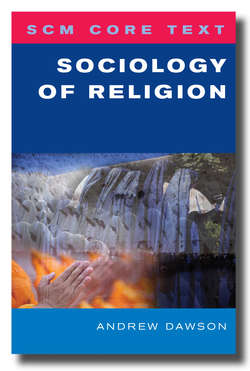Читать книгу SCM Core Text Sociology of Religion - Andrew Dawson - Страница 32
На сайте Литреса книга снята с продажи.
Practitioner perspectives
ОглавлениеThe challenging nature of studying religion in its sociological contexts is further highlighted when we move beyond consideration of established academic definitions and their conceptual preferences. What about religious practitioners themselves? Surely they’re best placed to offer a balanced definition of the word ‘religion’? Well, not exactly. Take the case of Spiritism, for example. Known also as Kardecism, after its founder Allan Kardec (1804–69), Spiritism arose in the mid-1800s as Europe underwent large-scale and rapid modernization thanks to the ongoing industrial revolution and emergence of modern capitalism.2 Reflecting the aspirations of its age, Spiritism styled itself as the modern-day successor to pre-scientific and overly superstitious religions such as Christianity, Judaism and Islam. Spreading from France to other parts of the world (particularly Latin America), it was not long before Spiritism assumed many of the reportorial ingredients which characterize the traditional religions it aspired to supersede.
Today, the overwhelming majority of Spiritists gather in purpose-built locations, at scheduled times of the week, in which designated functionaries lead tightly orchestrated meetings during which prayers are said to supernatural beings, honoured writings are read and edifying lessons taught. In effect, Spiritism exhibits a very large number of the ritual and symbolic traits which are generally regarded as typical of religion – at least, in its traditional format. However, when asked whether Spiritism is a ‘religion’, Spiritists vehemently resist the application of this term to their practices and beliefs. Continuing to define itself over and against established traditions such as Christianity, and despite overwhelming evidence to the contrary, Spiritism refuses to regard itself as a ‘religion’. Although more dissimilar to traditional religious repertoires than Spiritism, the refusal of many new age (such as Transcendental Meditation) and non-mainstream (such as Wicca) groups to own the label ‘religion’ is further indication of the negative connotations which this term has for certain practitioners.
Not so, however, for Scientology. The Church of Scientology was founded in the early 1950s by L. Ron Hubbard (1911–86). Heavily influenced by the human potential movement, Hubbard developed Scientology as the institutional channel through which his programme of spiritual enlightenment (‘Dianetics’) would be delivered to the world. Although recognized in various parts of the world as a legitimate religious organization, and despite the work of high-profile adepts such as Tom Cruise and John Travolta, Scientology has still to achieve unanimous acknowledgement of its claims to be defined as a bona fide religion rather than a ‘cult’ (see Chapter 7). Unlike Spiritism and Transcendental Meditation, for Scientology the application of the word ‘religion’ to its beliefs and practices is something very much sought after. Scientology’s public response to the ongoing refusal of certain countries (for example Germany) to recognize it as a religion is to argue that the suspicion with which it is treated serves only to hamper its mission and inhibit individual religious freedoms. Unofficially, of course, the continued denial of the label ‘religion’ renders Scientology ineligible to access the legal protections, political privileges and financial benefits which established, mainstream religions have traditionally enjoyed. Scientology’s campaign to be accorded the title ‘religion’ is as much motivated by strategic savvy as it is by evangelistic zeal.
